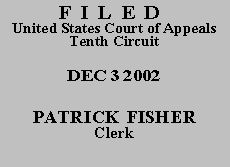

| UNITED STATES OF AMERICA,
Plaintiff - Appellee, v. KEVIN SHAWNDALE SMITH, Defendant - Appellant. |
|
The defendant was convicted, following the entry of a guilty plea, of possession with intent to distribute cocaine. The district court enhanced his sentence two levels under USSG § 2D1.1(b)(1) for possession of a firearm. The defendant appeals this enhancement. We affirm.
After the defendant had sold cocaine base to a confidential informant three times over a three-month period, authorities obtained and executed a search warrant for his apartment. During the search officers found, in addition to $970 in cash and some drugs, two firearms: a Browning Model Hi-Power 9 mm pistol, with a magazine and eight rounds of 9 mm ammunition, and an unloaded Norinoco Model SKS 762-39 rifle. Both weapons were found in the living room the pistol on an end-table and the rifle leaning against a wall.
The defendant pled guilty to one count of aiding and abetting the distribution of crack cocaine. He objected to the recommendation in the pre-sentence report that his base offense level be increased under § 2D1.1(b)(1) for possession of a firearm. He argued that there was never any reference to a firearm during any of the drug transactions and that the weapons were in his apartment purely as a coincidence. He further argued that the amount of drugs involved was so small that there was no need for a weapon.
The district court rejected these arguments, concluding that the location of the loaded weapon within eight to ten feet of the drugs overcomes the likelihood that it was clearly improbable that the weapons were not related to the drug transactions.
This court reviews factual findings under § 2D1.1(b)(1) for clear error, giving due deference to the application of the guidelines to the facts. United States v. Pompey, 264 F.3d 1176, 1180 (10th Cir. 2001), cert. denied, 534 U.S. 1117 (2002). Application of the increase derives essentially from a factual determination which this court reviews under a clearly erroneous standard. "The [enhancement for weapon possession] should be applied if the weapon was present, unless it is clearly improbable that the weapon was connected with the offense." USSG § 2D1.1(b)(1), comment., n. 3. The government bears the initial burden of proving possession by a preponderance of the evidence. Pompey, 264 F.3d at 1180. This burden may be satisfied by showing that there is a temporal and spatial relationship between the weapon, the drug trafficking activity, and the defendant. Id. Once the government has met its burden, the defendant must then show "that it is clearly improbable the weapon was connected to the offense." Id. "[T]he focus of § 2D1.1(b)(1) is whether [defendant] possessed a firearm in connection with the offense to which he pleaded guilty." United States v. Dickerson, 195 F.3d 1183, 1888 (10th Cir. 1999). Here, at least one of the drug transactions occurred at the defendant's home. Although there was no evidence that the defendant carried, brandished, loaned, accessed or held either of the firearms during any drug transaction, the uncontroverted evidence is that he possessed a firearm in a location where at least one of the drug sales occurred. Thus the district court's imposition of the firearms enhancement was not clearly erroneous.
Accordingly, the sentence imposed is AFFIRMED.
Entered for the Court
Circuit Judge
*. This order and judgment is not binding precedent, except under the doctrines of law of the case, res judicata, and collateral estoppel. The court generally disfavors the citation of orders and judgments; nevertheless, an order and judgment may be cited under the terms and conditions of 10th Cir. R. 36.3.